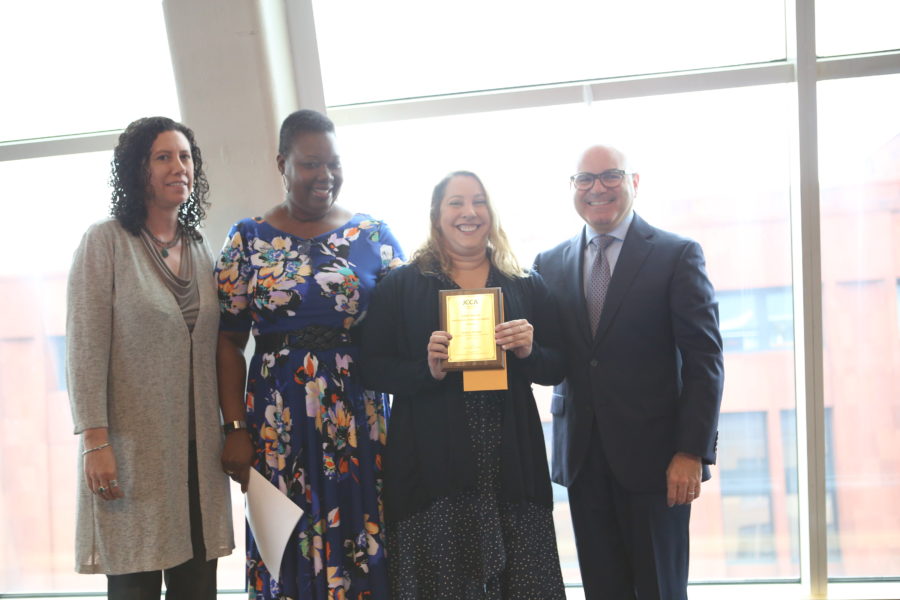 Every year, JCCA’s Robert Maslow Awards for Excellence in Practice recognize employees who have gone above and beyond their duties in support of JCCA’s mission. For a glimpse into the passion and dedication that power JCCA’s life-saving work, read our interview series profiling a few of the 2018 Maslow Winners.
Every year, JCCA’s Robert Maslow Awards for Excellence in Practice recognize employees who have gone above and beyond their duties in support of JCCA’s mission. For a glimpse into the passion and dedication that power JCCA’s life-saving work, read our interview series profiling a few of the 2018 Maslow Winners.
SHARON PLOTCH
Second Chances
JCCA: What are some of the significant issues your clients face?
SP: JCCA’s Second Chances program works with young people currently, previously, or at risk for involvement with police or the courts. But what we are really dealing with in these kids are issues of complex trauma, PTSD, depressive symptoms, and anger management. All of these are related to the trauma they have experienced. If they’ve seen or been the victims of domestic violence at home, they often don’t have a way to express their emotions about it. And they may have exaggerated responses in certain situations. If, for example, somebody yells at them, they can go into fight-or-flight mode, constantly being reactive. When that response kicks in, it may become a cycle in which they lose their reasoning abilities and get into trouble.
JCCA: What are some of the strengths of your program?
SP: It’s very flexible. Sometimes, youth who are court-involved don’t want to start therapy. So we try other ways to engage and interest them, like our Aim High leadership groups or vocational counseling. This also demonstrates to judges that the kids are involved in something productive and positive. Another great thing is that the program is totally free. Because it’s a short term program, 3-6 months, it is especially effective at engaging at-risk young people and helping them stay out of trouble at home, school, and in the courts.
JCCA: What tools do you use in your work with young people?
SP: Basically, psychoeducation. We explain to them that this is trauma, assuring them it’s not their fault. Sometimes we compare it to being in a bad car accident that you’ve had nothing to do with. We use Cognitive Behavior Therapy, Dialectical Behavioral Therapy, and mindfulness. We urge them not to get stuck in the past, to stay in the current moment, and develop better ways to function in the world.
JCCA: What do you find most satisfying about your work?
SP: Seeing youth get better. For instance, I have one client who had witnessed domestic violence when she was younger. When she entered junior high school, she was bullied. She started having serious depressive symptoms. After some time in the program, her depression decreased dramatically. She recently graduated junior high school, and is doing really well. I do put my heart and soul into Second Chances. It’s so gratifying seeing young people move past these difficult experiences.
